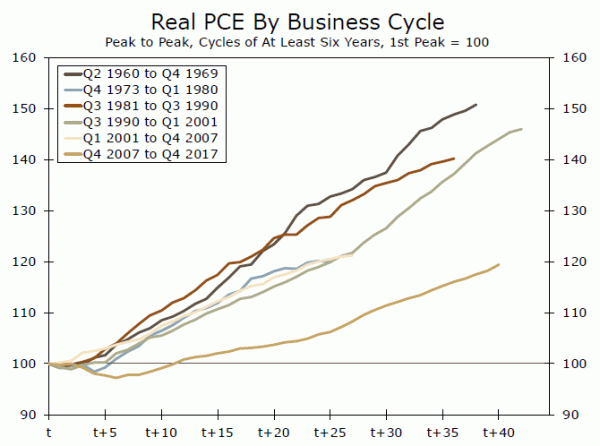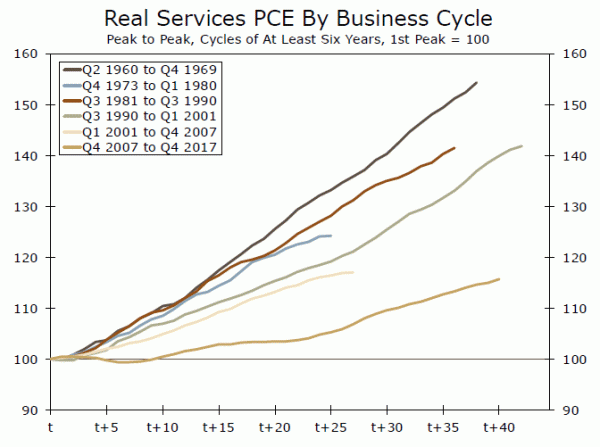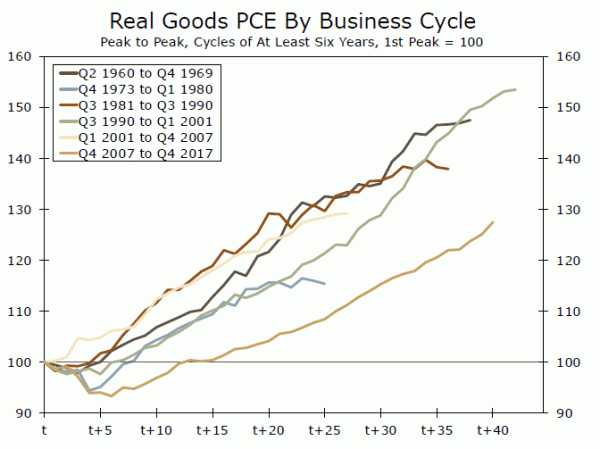Although real PCE growth has been the driving force in the U.S. economy, the recovery of real PCE throughout this expansion differs significantly from previous recoveries from recession.
Similar Length, Different Intensity
If our economic forecast is correct and the U.S. economy does not fall into a recession in 2018 or 2019, it will mean that the recovery from the Great Recession will be the longest economic expansion in U.S. history. However, the recovery has been all but impressive. Although this expansion is close to beating all other recoveries in terms of its length, the strength of this recovery has been very weak. This helps explain the weak recovery in inflation experienced during this expansion. Furthermore, this weakness has allowed the Federal Reserve to keep interest rates low for a very long period of time.
Recessions, typically, do not negatively affect personal consumption expenditures (PCE) as much as other GDP components. That is, the recession has to be very severe to bring consumption growth into negative territory, as real PCE is normally the most stable component of GDP. The Great Recession was one such recession, as real PCE remained under pressure for more than two years from the peak of the previous expansion (top graph).
Although much of the decline in real PCE during the Great Recession was due to a collapse in the consumption of goods, the service side of real PCE was also slow to recover from the Great Recession. The services side has remained weak well into this economic recovery, something very uncharacteristic if compared to previous business cycles (middle graph). That is, although the slope of the line in the middle graph labeled Q4 2007 to Q4 2017 has steepened somewhat during the past several years, it remains flatter than in previous recoveries.
The story from the goods side of real PCE is a bit better. Although the consumption of goods collapsed as the Great Recession hit, and remained depressed for more than two years, the recovery in goods consumption has strengthened since (steeper line in bottom graph). The consumption of goods has remained relatively strong compared to the service side of real PCE. Once again, as the bottom graph shows, the growth in the consumption of real goods has remained weak if compared to previous recoveries, but it has performed a bit better than the service side of real PCE.
Real PCE: Strong but Not Strong Enough
Although the American consumer has been in the driver seat of the U.S. economy since the recovery from the Great Recession, the recovery in real PCE has been weak compared to previous recoveries going back to the 1960s. That is, it is clear the Great Recession has had a lasting effect on the behavior of the American consumer. In future reports we will take a look at which sectors within goods and services consumption have been driving this weakness, and if there are any sectors within these two broad categories that have bucked the trend.



